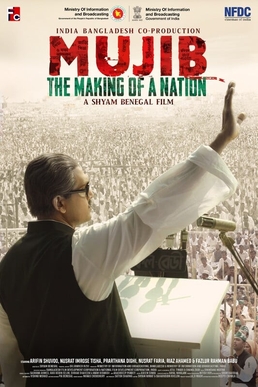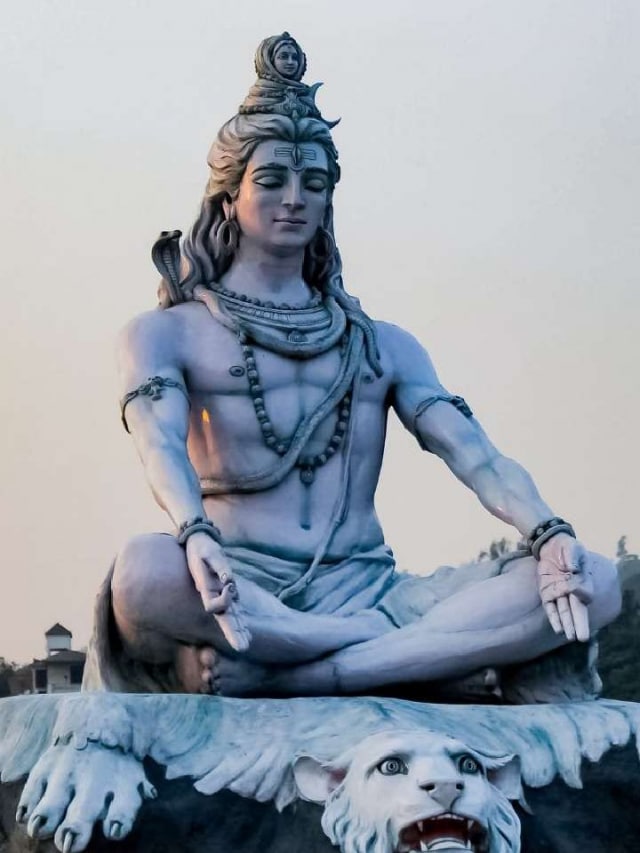
Politically correct, creatively flawed – Beyond Bollywood
The India-Bangladesh joint diplomatic co-production isn’t quite a fitting ode to Bangladesh’s founding father Sheikh Mujibur Rahman
Rating: ⭐️⭐️ (2 / 5)
By Mayur Lookhar
If nations were built on religious identity, then the Middle East should have been one nation. Religion plays it role, but an individual’s primary identity stems from language. The partition of India was first mooted in Bengal region with the sizable Muslim population in the east clamoring for a separate Muslim state Pakistan. Though common religion, but the different cultures, lingual divide, autocratic establishment inevitably led to the break-up of Pakistan with East Bengal becoming Bangladesh in 1971. Leading the Bangla dream was a fierce man Sheikh Mujibur Rahman. fondly known as Bangabandhu [Friend of Bengal].

Near five decades after the tragedy of 1975, we have a first biographical film on Bangabandhu. This is one joint Indo-Bangla diplomatic production. Back in 2016-2017, Indian Prime Minister Narendra Modi had conveyed to his Bangladeshi counterpart PM Sheikh Hasina [Mujibur’s daughter] a desire to jointly produce a biopic on the much-revered late first PM of Bangladesh. Apart from the two governments, the respective I & B Ministries, the National Film Development Corporations on both sides came together with the Mujib dream. Covid-19 played a stumbling block, but after six years, we have Mujib: The Making of a Nation [2023].
Bangladesh had longed for such a film for ages. The Indo-Bangla join production went through its bureaucracy with veteran Indian filmmaker Shyam Benegal being chosen to helm Bangabandhu’s story. Penned by Atul Tiwari, and Shama Zaidi, Mujib: The Making of a Nation hits the theatres in India two weeks after its release in Bangladesh.
Playing the great man is Bangladeshi National award winner Arifin Shuvoo. We had a first look at Shuvoo in Indian film Ahaa Re [2019]. Whilst one expects the people of Bangladesh to know the Mujibur Rahman story, Indian [non-Bengali] audience get to know about the great man’s life, and his tragic death. India still has stable political ties with Bangladesh. It, however, has been tested first with the migration of Bangladeshis in to Bengal, Assam. More recently, the civilian relationship had its tense moments, especially in the wake of rising religious fundamentalism in Bangladesh. Bengalis across both sides perhaps have equal respect, but fringe elements in Dhaka naturally don’t please Bengalis, non-Bengalis in India.
Shyam Benegal’s film rides on Bengal nationalism. It reminds people across both India and Bangladesh that how infighting between each other only benefits a third nation. Benegal, both governments, though are mindful to rightly villainize the military dictatorship, but not quite the civilian population in Pakistan. It’s also a reminder for radical Islamists, fringe pro-Pakistan elements in Bangladesh to never forget their history. This is a nation that has paid a great price for its freedom. The genocide, rape by Pakistani military establishment should never be forgotten. The internal politics isn’t ignored here with a suspicious portrayal of former Bangladeshi president Ziaur Rahman, husband of Khaleda Zia, who would later become the chief political rival to Sheikh Hasina.
The film is politically correct in its discourse. But creatively, its dull screenplay doesn’t do justice to the great man. Three hours are never enough to cover a lifetime. It’s not the 178 minutes screentime, but the shallow screenplay that doesn’t build adequate engagement. The film only picks momentum in the second half when tension escalates between Dhaka and Islamabad. The tragic climax is moving, which surely must have been tough for Sheikh Hasina to watch, i.e., assuming, she watched it.

Arifin Shuvoo impressed us in Ahaa Re [2019], but this dubbed Hindi version feels a letdown. The messy screenplay adds to Shuvoo’s woes. Whilst he scores on the physical aspect, Shuvoo is inconsistent in his intensity.
Benegal covers the personal side to Mujibur Rahman finely. Nusrat Imrose Tisha is competent as Mujibur’s wife Sheikh Fazilatunnesa Mujib aka Renu. Nusraat Faria, too, holds her own as Sheikh Hasina. Deepak Antani returns to play Gandhi, this time in a cameo role in the Indo-Bangladeshi film.
For a film mooted by BJP-led government, one welcomes the positive portrayal of then Indian PM Indira Gandhi, via a famous interview to an international channel.
Time has flown by since Benegal got onboard Mujib. Now 88, the octogenarian naturally must have had a challenge in helming this film. Benegal returns to direction after 13 years. The veteran filmmaker is known for his socialist films. Mujib reflects that socialism, but it lacks the Benegal finesse of the bygone eras.
Sheikh Mujibur Rahman’s inspiring story always had the makings of a great film. Maybe the Bangla version would offer a mora immersive, inspiring experience. This dubbed Hindi version though isn’t quite an fitting ode to Bangabandhu.
Watch the video review below.
Publisher: Source link
